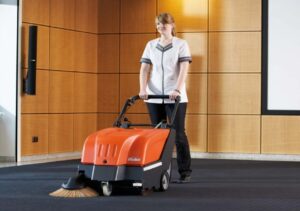When Seconds Matter: How Seniors Get Help Even When No One’s Around

FreePik.com
Getting older brings a lot of new experiences. Many of them are good—more time with family, hobbies, and a slower pace of life. But for seniors who live alone, there’s one big concern that tends to stay in the back of everyone’s mind: what happens during an emergency when no one else is around?
Whether it’s a fall, a sudden illness, or a moment of confusion, those first few minutes can be the most important. Waiting too long to get help can turn a small problem into a much bigger one. That’s why it’s more important than ever to have systems in place that make sure help is always within reach—no matter where someone is or what time it is.
Why Being Alone Can Be Dangerous
Many seniors choose to live on their own. It gives them freedom, comfort, and a sense of control. But being alone also means that if something goes wrong—like slipping on the stairs or feeling dizzy—there might not be anyone nearby to notice or call for help.
The risk of falls increases as people get older, especially for those with balance problems or health conditions like arthritis or low blood pressure. Even medications can affect balance or make someone feel faint. If a senior falls and can’t reach the phone, they may be stuck on the floor for hours before anyone finds them.
This is where medical alert systems Canada options become incredibly useful. These devices aren’t just about pushing a button—they’re about getting fast, direct access to trained professionals who can send help right away. Some models can even detect a fall on their own and call for help automatically, which can be a lifesaver if someone is unconscious or unable to speak.
How These Systems Work
Most medical alert systems are built around a simple idea: make it easy to get help. They usually come with a small, lightweight device that can be worn around the neck or wrist. If something happens, the person wearing it just presses the button. The device connects to a call center where someone is always available—24 hours a day, 7 days a week.
Once the alert is received, the operator speaks to the person through a speaker system. If the person says they need help—or if they don’t respond at all—emergency services or a listed family member can be contacted right away. Some systems are connected through a landline, while others use cellular service or even GPS, so they can work both at home and on the go.
A few high-end systems even come with automatic fall detection. This means if someone falls hard and doesn’t press the button, the system can still recognize the movement and call for help anyway. It’s a powerful feature for anyone at higher risk of falling or who might become unconscious after an accident.
Peace of Mind for Everyone
One of the biggest benefits of using a medical alert system is the peace of mind it gives—not just to seniors, but also to their families. Children and caregivers can worry less knowing there’s always a way to get help. Seniors don’t have to carry a phone everywhere or worry about remembering numbers. They just need to wear the device.
It also encourages more independence. Some older adults worry that needing help means giving up freedom. But in reality, these systems are what let many people keep their freedom. Instead of moving to assisted living or relying on others all the time, they can keep living how they want—because help is always just a button away.
Not Just for the Home
While many people use these systems in the house, some models are made for outdoor use too. That means they work while walking the dog, going to the store, or visiting a friend. If something happens outside the home, the system can still contact help and give the exact location using GPS.
This is especially helpful for seniors who still like to be active or live in rural areas. Emergencies don’t always happen in one place, so having coverage everywhere makes a big difference.
Things to Think About When Choosing a System
Not all systems are the same. When picking one, it’s smart to look for features that match the person’s needs. Some may want a simple button with a speaker. Others might need automatic fall detection or a device that works outside the house.
Battery life is another thing to consider. Some devices need charging every day, while others last for weeks. It’s also worth checking if the system connects through landline, mobile network, or Wi-Fi, depending on what’s available where the person lives.
Cost matters too. Some systems have monthly fees, while others might require a contract. The best option is one that fits the person’s lifestyle and budget without adding stress.
The Real Reason It Matters
In emergencies, every second counts. Waiting too long for help can mean more pain, longer hospital stays, or more serious health problems. Quick help can stop a small problem from becoming a big one. For many families, knowing their loved one has access to that kind of fast response is a huge relief.
Medical alert systems aren’t just gadgets. They’re tools that help seniors stay safe, stay confident, and stay independent. They give people time—time to get help, time to heal, and time to keep living the life they want.
Key Takeaways
Living alone doesn’t have to mean being unprotected. Medical alert systems offer a simple, reliable way to get help fast in case of an emergency. With features like wearable buttons, GPS tracking, and automatic fall detection, they give both seniors and families peace of mind.
Safety isn’t about giving up freedom—it’s about protecting it. And with the right tools in place, older adults can keep enjoying their independence while staying secure every day.
If this topic matters to you or someone you care about, it’s worth having the conversation now. When seconds matter, being ready can make all the difference.






